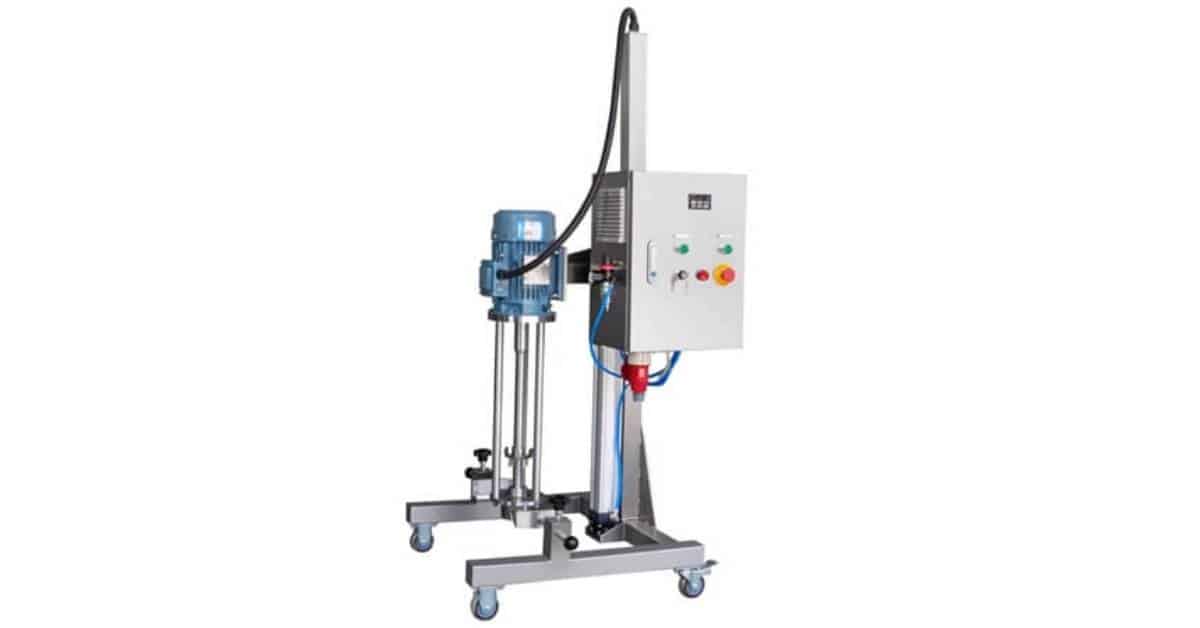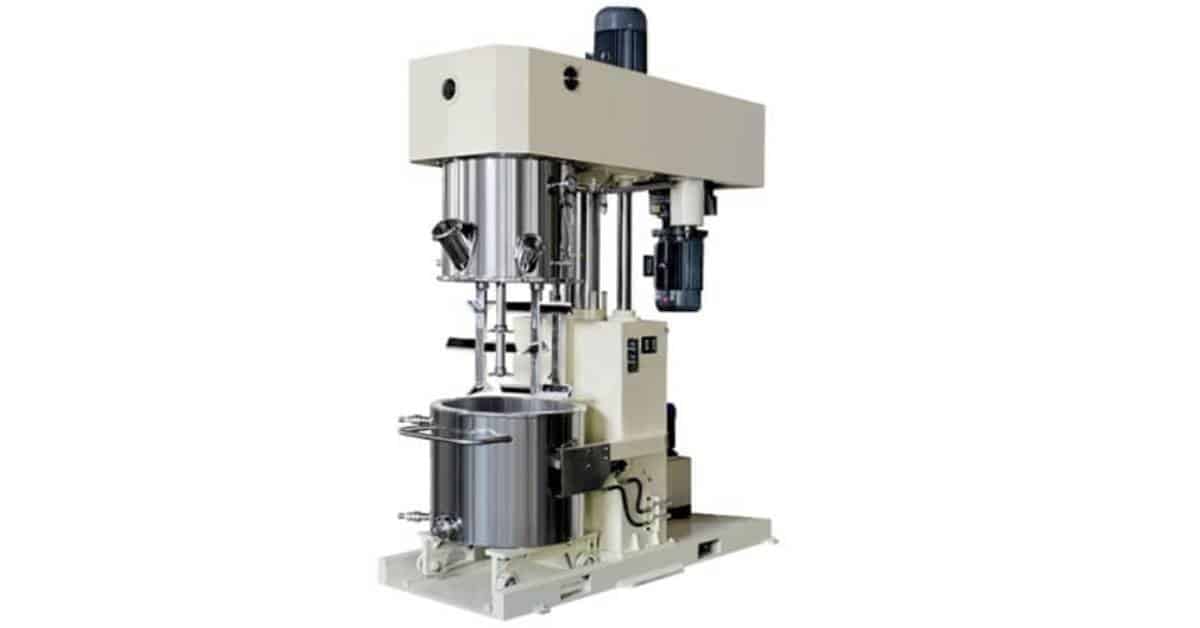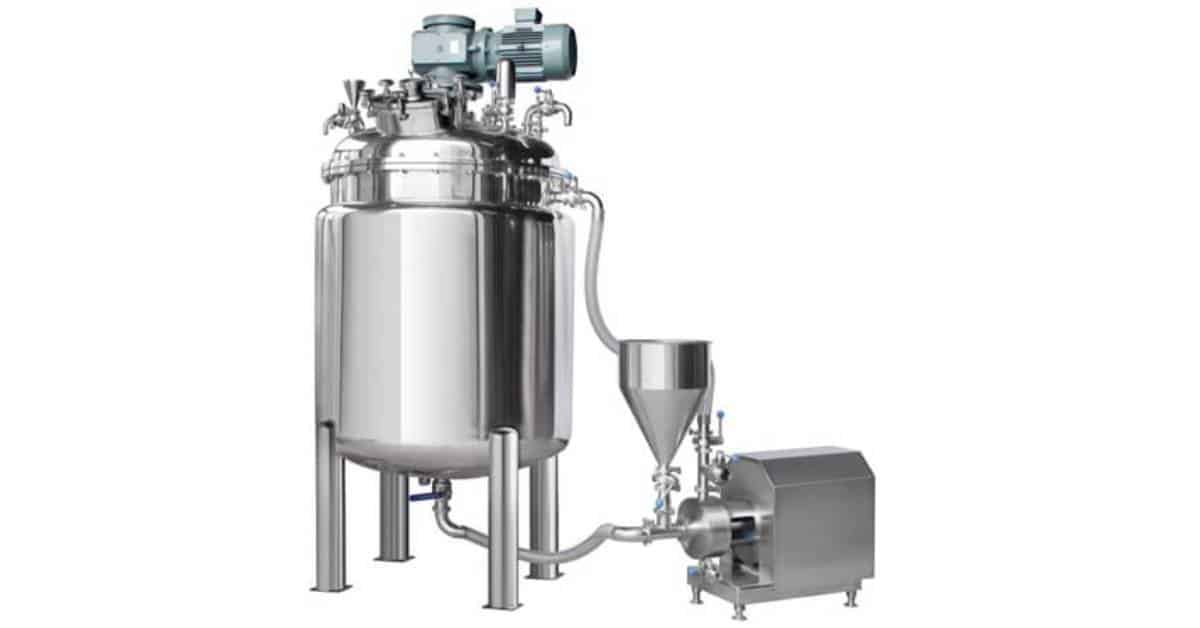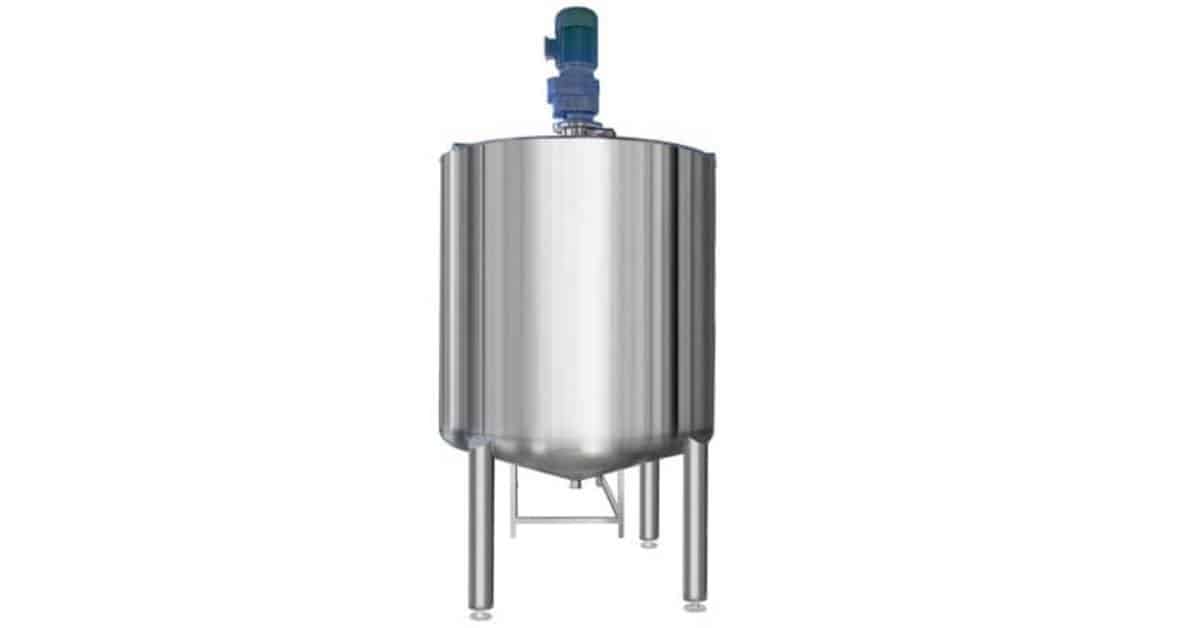



Liquid asphalt is known for being a powerful binding agent, especially used for maintaining pavements, as construction sealers, and for many other applications. Factories create liquid asphalt by dispersing asphalt cement into water. The two materials are known to be immiscible, which is why they are processed using industrial emulsifying mixers.
While mixers and agitators are often used for blending colors, paint agitators built for industrial use can be utilized to manufacture paint. Such machines combine resins, solvents, pigments, and additives, gradually creating a homogeneous paint mixture. The powerful shearing and agitation of the mixing equipment ensure consistent and void-free paint.
Farm chemicals like pesticides, herbicides, fungicides, insecticides, and other types, are formed by mixing numerous active ingredients and other materials. Mixing them using the right vessel is necessary to prevent unwanted chemical reactions brought about by the surface material of the tank. Using farm chemical mixing tanks would be necessary for such scenarios.
Biofuels are continuously being developed with the recent environmental concerns occurring. Biodiesel is one form of liquid fuel that can be used to power compression-ignition engines and is derived by mixing alcohol with animal fat, cooking grease, and/or vegetable oil. Combining them in large batches can be done with industrial blenders.
Rubber is used in many industries, and further research and development are continuously being held to improve its characteristics. For example, creating synthetic rubbers may require the usage of styrene-butadiene and nitrile rubber. Combining them in testing labs may be necessary, and lab rubber mixers are a perfect fit for such an application.
Aside from being a decorative material, paint can be used for fortifying many kinds of things from wear and degradation brought about by external physical conditions. Making them available in various colors is necessary due to market demand, and industrial paint color mixing machines are the key to processing them in large batches.
Drywall mud is commonly used for finishing drywall joints, corners, and cracks, and it is in the form of paste. Such a product is made from gypsum, a soft but abrasive mineral, alongside many other materials like polymers, water, limestone, and more. Mixing them into a homogeneous blend can be done with a robust drywall mud mixer.
While engine oil is mostly made up of base oil, several other ingredients need to be added to improve its overall characteristics. For example, engine oil factories may have to include additives for improving viscosity, detergents, and other ingredients. Efficient mixers are used to process them as they can thoroughly blend all of the components.
While nail polish seems to be made of simple ingredients, it is made up of a complex array of components, such as solvents, resins, film formers, thickeners, plasticizers, and other chemicals. High-performing nail polish mixers can combine all of them without issues of agglomeration, poor pigment dispersion, and similar problems.
Adhesives can be used in product manufacturing, construction, material assembly, woodworking, and many other domains. Factories formulate adhesives by combining numerous solids and liquids, including solvents, thickeners, emulsifiers, wetting agents, and a lot more. Using adhesive mixing machines is necessary to mix them into the desired consistency.
Chemical products involve the dispersion of many types of abrasives, solids, minerals, and other solids. While conventional mixers may be able to process them, they may not last long due to wear. Industrial chemical mixers are built specifically for such applications, featuring wear-resistant properties for better production in factories.
Factories often have to mix liquids of both aqueous and oil phases, which are known to be immiscible. Having a robust industrial-grade mixer is key to emulsifying them into a steady and consistent mixture. By having the ingredients finely distributed into droplets, stable emulsions can be formed.
Industrial emulsifying mixers make use of their powerful blades to properly produce fine droplets of the cosmetic ingredients, resulting in a stable and consistent emulsion. Such yield is necessary to ensure that the cosmetic products would be stable even after a few years in storage.
The various ingredients needed to be combined and blended when manufacturing chemical products come in a wide spectrum of viscosities, and some examples include hardeners and resin. Manufacturers need industrial chemical mixing equipment to successfully process such highly viscous materials as they are built with powerful motors and high-shear blades.
Industrial chemical mixers come in various configurations, and they may come in inline and batch equipment. With the right specification, they can hold more formulation proportions, achieve faster processing, enable continuous production, and do many other advantages. Manufacturers can maximize their production capacity with industrial mixers.
Cosmetic manufacturers often disperse powders and other solid ingredients into molten wax or other kinds of liquids, achieving the right mix needed to produce a specific personal care product. Industrial machines like high-shear mixers can effectively break down, wet out, and disperse such solids into the mixture.
Many chemical products contain ingredients of varying viscosities that our Ginhong mixers can effectively combine. Some of them are epoxy hardeners, thickeners, lubricant pastes, rubber, resins, and many others.
Our chemical processing equipment can disperse various kinds of solid components, such as calcium carbonate, synthetic stones, fillers, coal, and many other materials, into liquid components.
Ginhong mixers perform excellently in processing various kinds of slurries needed for creating aerosols, paints, adhesives, and similar products. Some examples are chlorinated organics, coal slurries, soil-cement slurries, and more.
Dissolving numerous sets of chemical-related powders into liquids of varying viscosities can be done without issues with our mixers. These include powdered materials like silicon dioxide, polymers, thickeners, and more.
A lot of formulations require the dispersion of solids in liquid materials. Achieve uniform blends with a wide array of liquids, such as oils, acids, water, and many more kinds of fluids of different viscosities.
The mixing machines we create offer high-shear rates, multiple shaft configurations, efficient mixing principles, and other features. Foaming and aeration can be kept at a minimum with the high-speed blades of our mixers.
Different from conventional mixing equipment, Ginhong mixers perform excellently in terms of getting rid of voids, fish eyes, agglomerates, and similar unwanted issues from various mixtures with high-shear rates and vacuum systems.
Our mixers at Ginhong feature large mixing capacities, allowing manufacturers to process larger batches of their chemical products. With the high-efficiency mixing process provided by our machines, each yield can achieve the standard uniformity and consistency needed by factories.
As a leading manufacturer of various types of mixers and blenders, our team at Ginhong produces every piece of chemical processing equipment with absolute precision, allowing our clients to gain access to powerful and quality-guaranteed mixing technology.